Allahumma Rahmataka Arju Meaning, Arabic, Hadith, And Benefits
Advertisements
Allahumma rahmataka arju is a simple and powerful supplication for the one in distress and also dua to help find a solution to tackle a problem. In this blog, we will delve into the meaning and significance of this heartfelt dua.
Allahumma Rahmataka Arju Meaning In English.
Allaahumma Rahmataka Arju means O Allah, I hope for Your mercy. Do not leave me to myself even for a blink of an eye. Correct all of my affairs for me. There is none worthy of worship except You.
Allahumma Rahmataka Arju Dua in Arabic
The Dua for depression and distress can be written in Arabic text as;
اللَّهُمَّ رَحْمَتَكَ أَرْجُو فَلَا تَكِلْنِي إِلَى نَفْسِي طَرْفَةَ عَيْنٍ وَأَصْلِحْ لِي شَأْنِي كُلَّهُ لَا إِلَهَ إِلَا أَنْتَ.
Pronounciation/ Transliteration
Allaahumma Rahmataka Arju fala Takilni Ila Nafsi Tarfata Ayn wa Aslih li Sha’ni Kullah La Ilaaha Illa Ant.
Advertisements
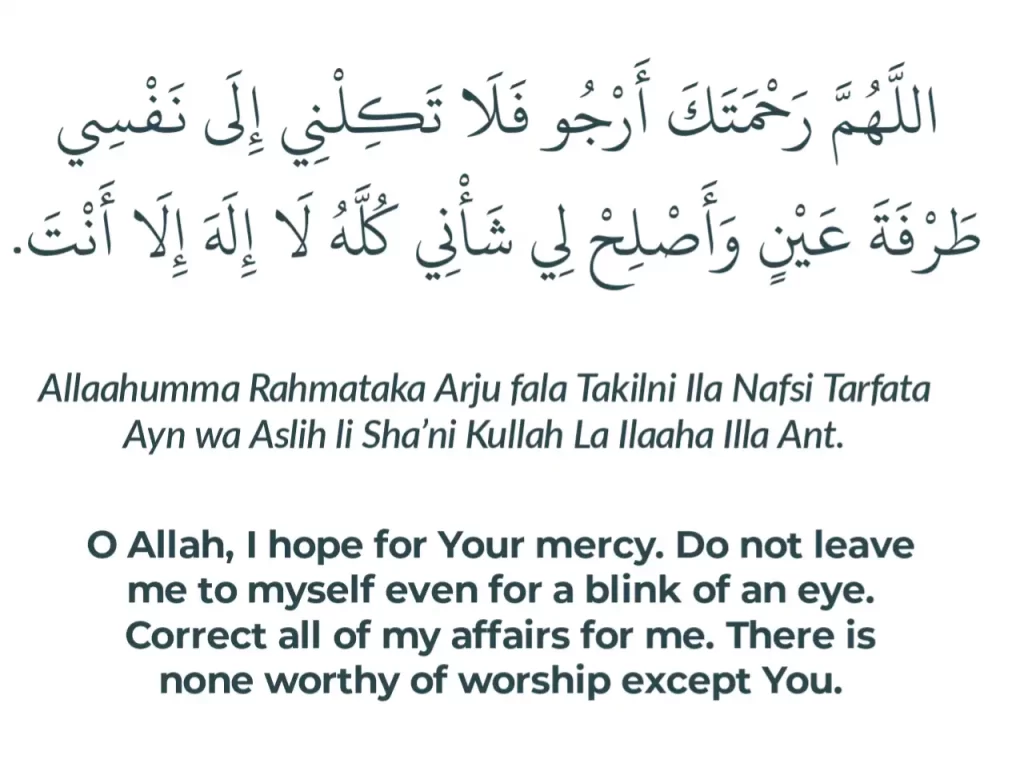
Hadith Related To Allahumma Rahmataka
Abu Bakrah, may Allaah be pleased with him, reported that the Messenger of Allaah, sallallaahu alayhi wa sallam, said: The supplication of the one in distress is: O Allaah, Your Mercy is what I yearn and hope for, so do not entrust me to myself, not even for the blink of an eye. Also, set all my affairs straight; there is no deity worthy of worship besides You.
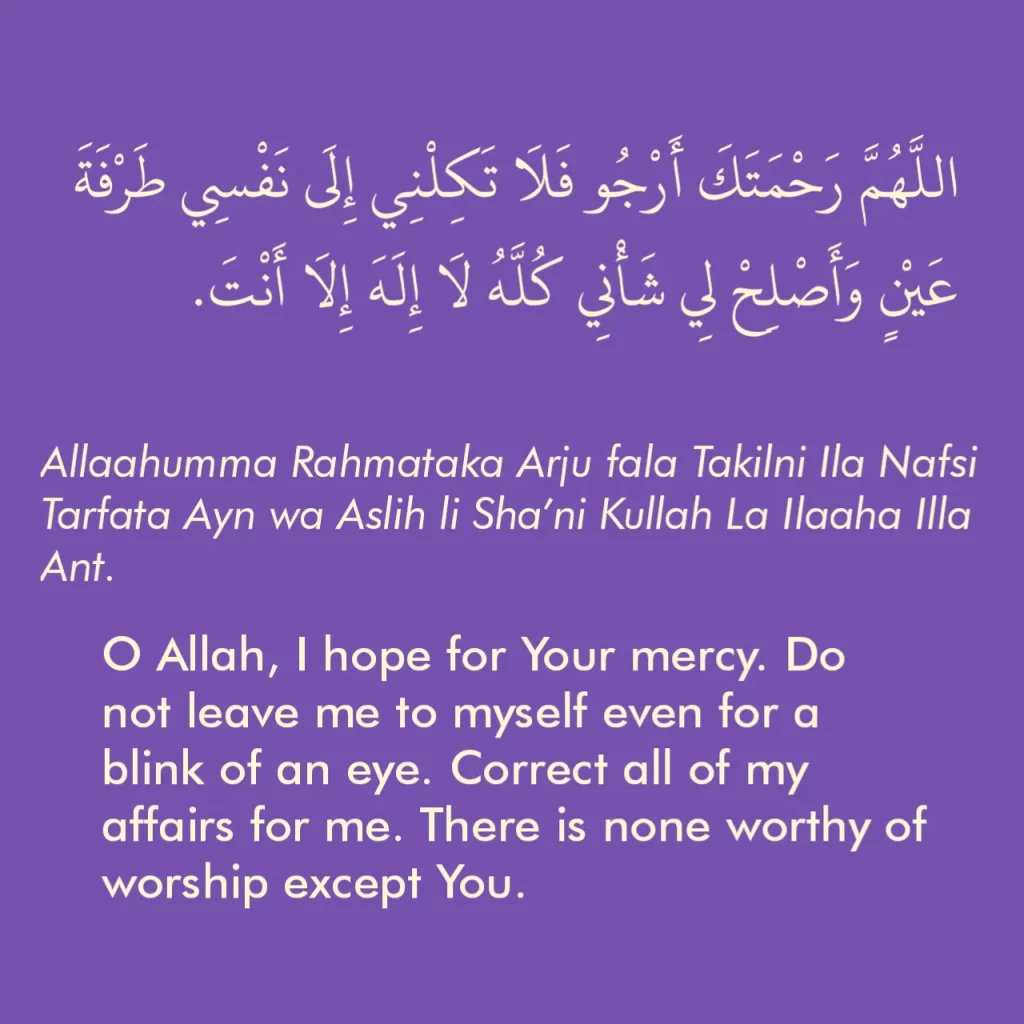
Read also similar dua:
- Allahumma Inni A’uzu Bika Minal Barasi Dua
- Allahumma Ballighna Ramadan Meaning
- Allahumma Anfani Bima Allamtani In Arabic And Meaning
Simple Explanation
Your Mercy is what I yearn and hope for,” he, sallallaahu alayhi wa sallam, gave precedence to Mercy over seeking and mentioning what he yearns for in order to show restriction, as in, I only yearn for Your Mercy.
Do not entrust me to myself, let alone someone else, because if You leave me to myself, You would be entrusting me and leaving me to weakness, fault, sin, and mistakes.
Al-Nannaawi, may Allaah have mercy on him, said: He ended with the phrase of monotheism to show that supplication helps the distressed one and removes their distress if they have presence of heart.
Whoever testifies to Allaah’s unity while also coupling determination with presence of mind, then it is likely and appropriate that their distress be removed in this life, and be shown Mercy and have their levels raised in the Hereafter.
Advertisements
The occasion of this supplication by using the phrase of monotheism to remove distress is that the phrase of monotheism illuminates the heart, radiates the soul, and if the heart is illuminated, distress is removed from it.
When he, sallallaahu alayhi wa sallam, said: Glorified are You, meaning, I declare You transcendent above being rendered incapable by anything.
Breakdown Of The Dua
- Invocation to Allah: The dua begins with a heartfelt call to Allah, the Most Merciful and Compassionate. It reflects the deep connection between the supplicant and their Creator.
- Hope for Allah’s Mercy: The supplicant expresses their hope and reliance on Allah’s boundless mercy. It signifies the belief in Allah’s benevolence and the expectation of His forgiveness and compassion.
- A Plea for Allah Guidance: The dua is a plea for guidance and divine assistance. It acknowledges the human need for Allah’s guidance in every aspect of life, both big and small.
- Complete Reliance on Allah: The phrase “Do not leave me to myself even for a blink of an eye” emphasizes the supplicant’s total dependence on Allah. It recognizes that human beings are powerless without His support.
- Correcting Affairs: The dua seeks Allah’s intervention to rectify and improve all matters in the supplicant’s life. It implies a desire for order, balance, and righteousness in one’s affairs.
- Sole Worship of Allah: The declaration “There is none worthy of worship except You” reinforces the concept of monotheism and the belief in Allah as the only deity deserving of worship. It affirms the singularity of Allah in the supplicant’s faith.
- Simplicity and Humility: This dua is simple yet profound, demonstrating the humility of the supplicant before Allah. It encapsulates the core principles of Islamic faith, including trust, reliance, and acknowledgment of Allah’s unique attributes.
- Continuous Connection: By reciting this dua, individuals maintain a constant connection with Allah, acknowledging His presence in their lives and inviting His guidance and mercy in their daily affairs.
- Emotional and Spiritual Depth: This dua carries a deep emotional and spiritual significance. It reflects a sincere desire for spiritual growth and closeness to Allah, along with a genuine recognition of one’s own limitations.
- Recitation and Reflection: This dua can be recited regularly, serving as a reminder of one’s faith and trust in Allah. It encourages self-reflection and a commitment to seeking His guidance and mercy in all aspects of life.
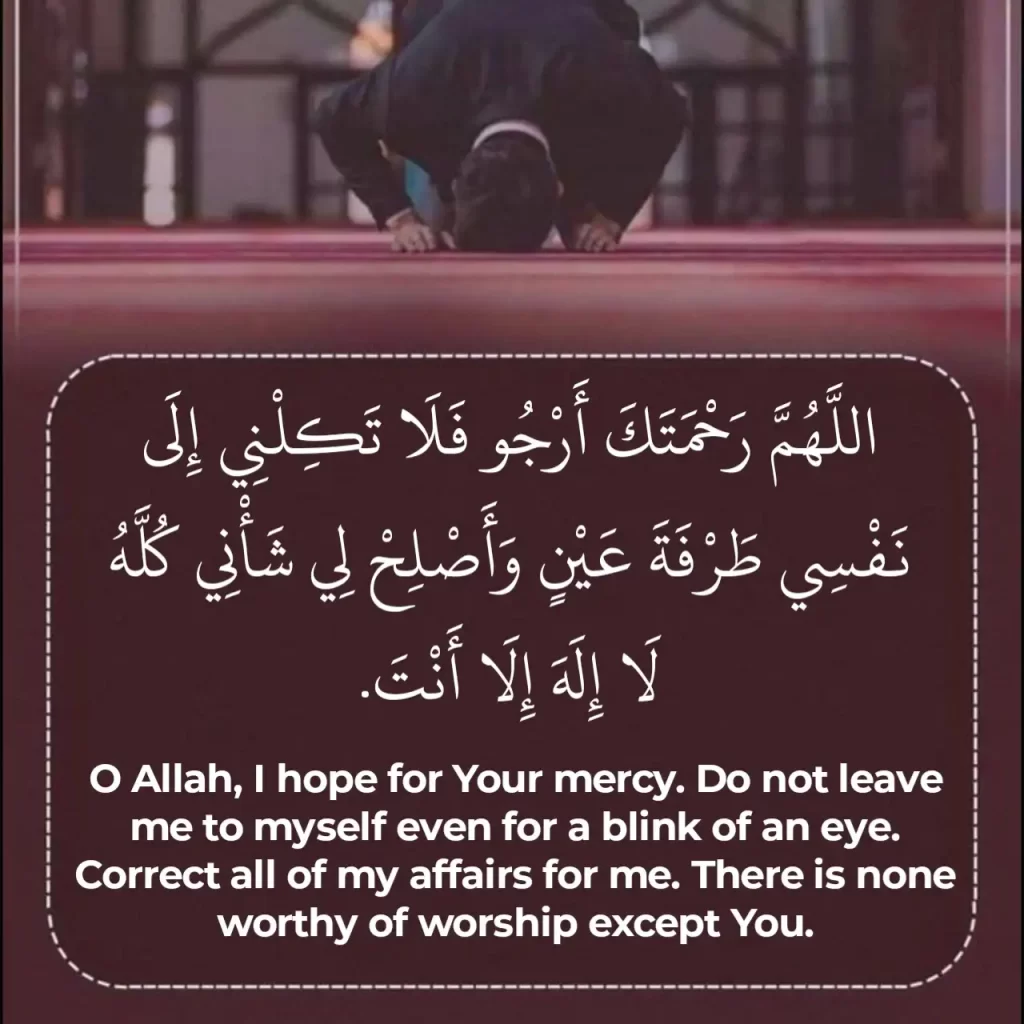
Benefits
The dua, “O Allah, I hope for Your mercy. Do not leave me to myself even for a blink of an eye. Correct all of my affairs for me. There is none worthy of worship except You,” is often recited by individuals in times of distress and difficulty. Here are some of the benefits of reciting this dua during such moments:
- Seeking Divine Help: This dua is a direct plea to Allah for assistance during times of distress. It acknowledges human vulnerability and the need for divine intervention.
- Hope and Comfort: Reciting this dua provides a sense of hope and comfort in challenging situations. It reinforces the belief that Allah’s mercy is always accessible, even in the toughest times.
- Emotional Relief: In moments of distress, verbalizing one’s concerns and supplications can provide emotional relief and a sense of catharsis.
- Submission to Allah’s Will: The dua reflects the idea of surrendering to Allah’s will. By reciting it, one acknowledges that ultimate control lies with Allah and places trust in His wisdom.
- Self-Reflection: Reciting this dua encourages self-reflection. It prompts individuals to evaluate their affairs, seek improvement, and re-establish their connection with Allah.
- Affirmation of Faith: The declaration that “There is none worthy of worship except You” reaffirms one’s faith in the oneness of Allah. It is a reminder of the core principle of monotheism in Islam.
- Guidance and Correction: The dua seeks Allah’s assistance in correcting one’s affairs. It implies a desire for guidance and wisdom to navigate through challenging times.
- Consolation and Patience: Reciting this dua can provide a source of consolation and patience. It reminds individuals that Allah is aware of their struggles and is capable of easing their difficulties.
- Strengthening the Connection with Allah: During distress, people often turn to their Creator for support. This dua helps strengthen the connection between the supplicant and Allah, fostering a sense of spirituality.
- Coping Mechanism: This dua serves as a coping mechanism for dealing with stress, anxiety, and adversity. It encourages individuals to rely on their faith and the power of prayer to overcome difficulties.
- Positive Outlook: By invoking Allah’s mercy and guidance, the supplicant can maintain a more positive outlook, even in the face of distress, believing that Allah’s help is near.
- Increased Patience and Resilience: Reciting this dua can help individuals develop patience and resilience, recognizing that hardships are a test from Allah and an opportunity for personal growth.
In summary, this dua for distress offers a multitude of benefits, including seeking divine help, emotional relief, affirming faith, and fostering patience and resilience.
It serves as a powerful tool for maintaining a strong connection with Allah during challenging times.
May Allah Grant Us Success.
Advertisements

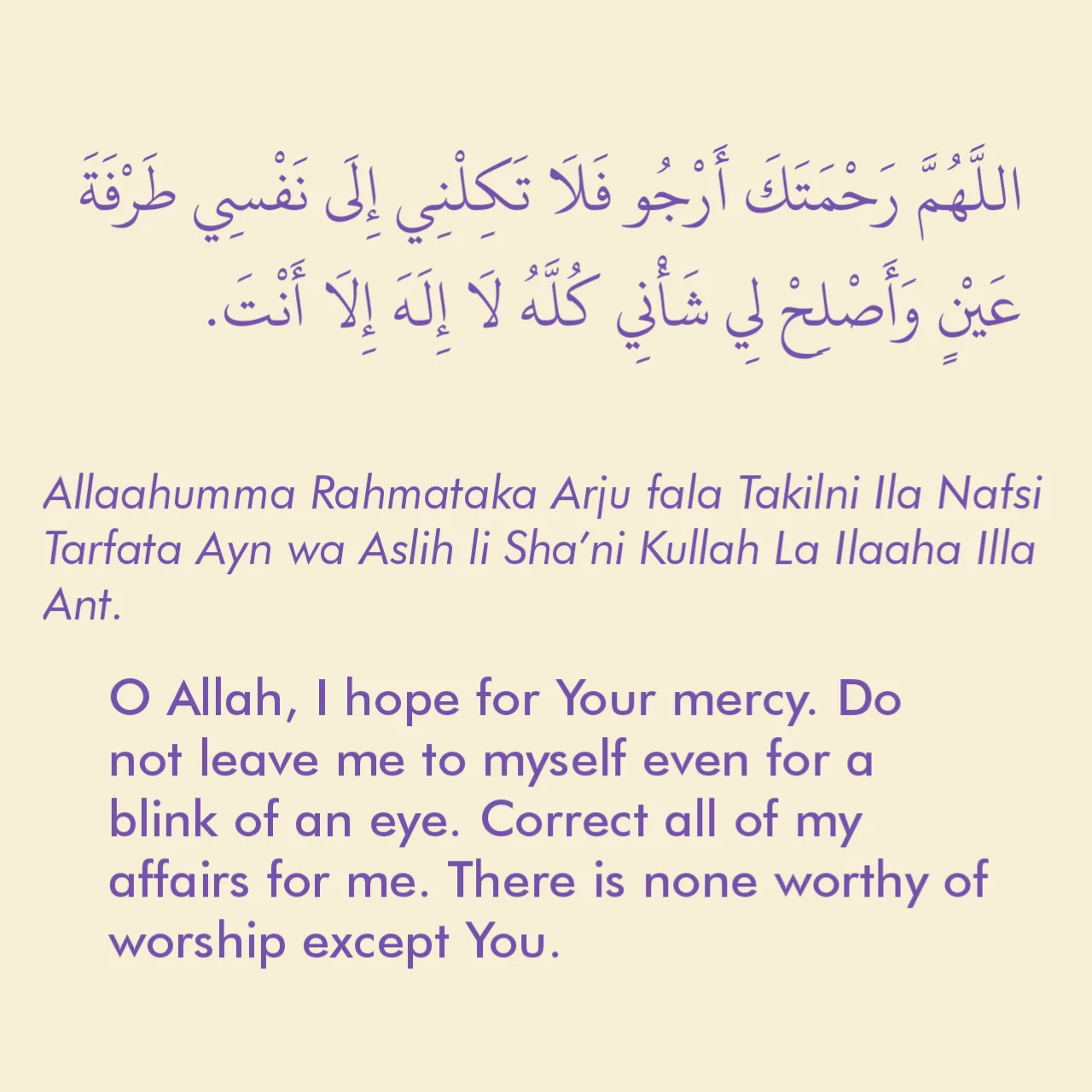
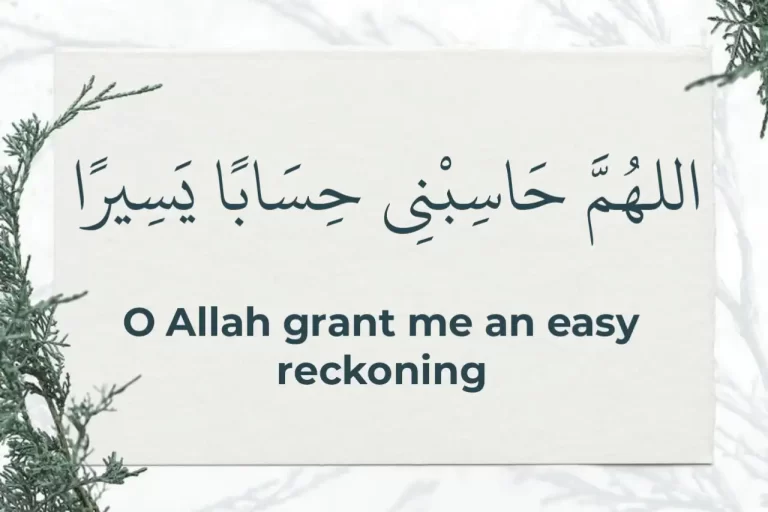
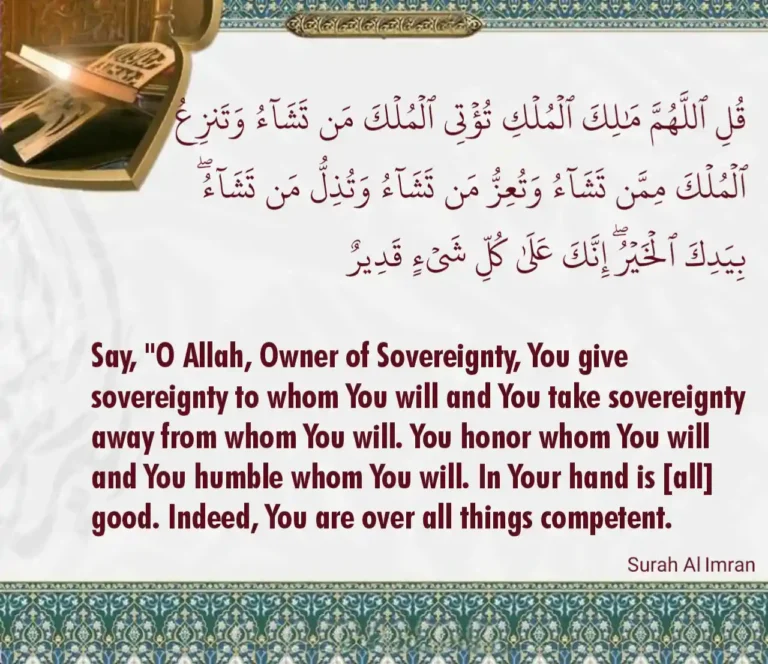
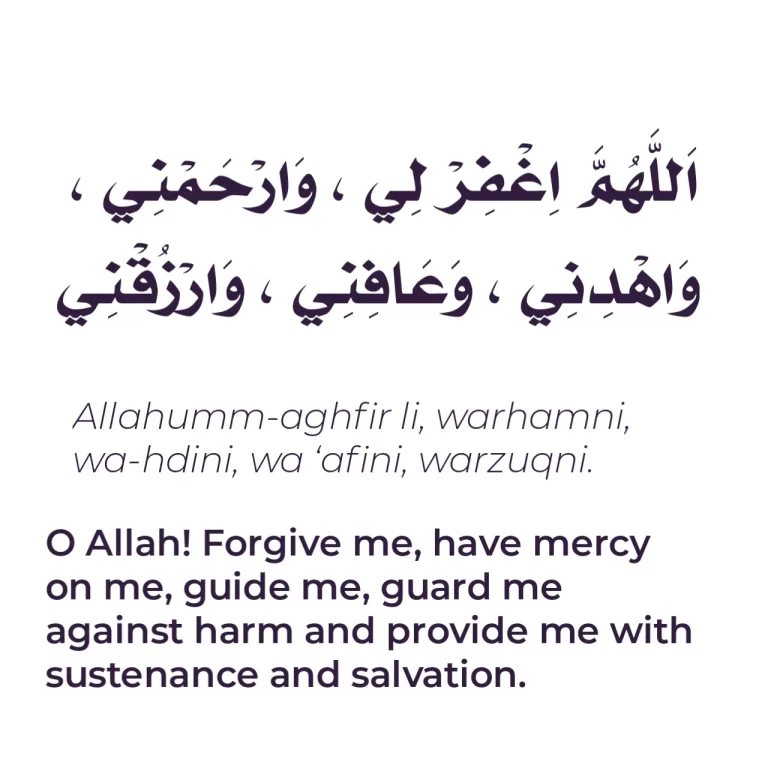

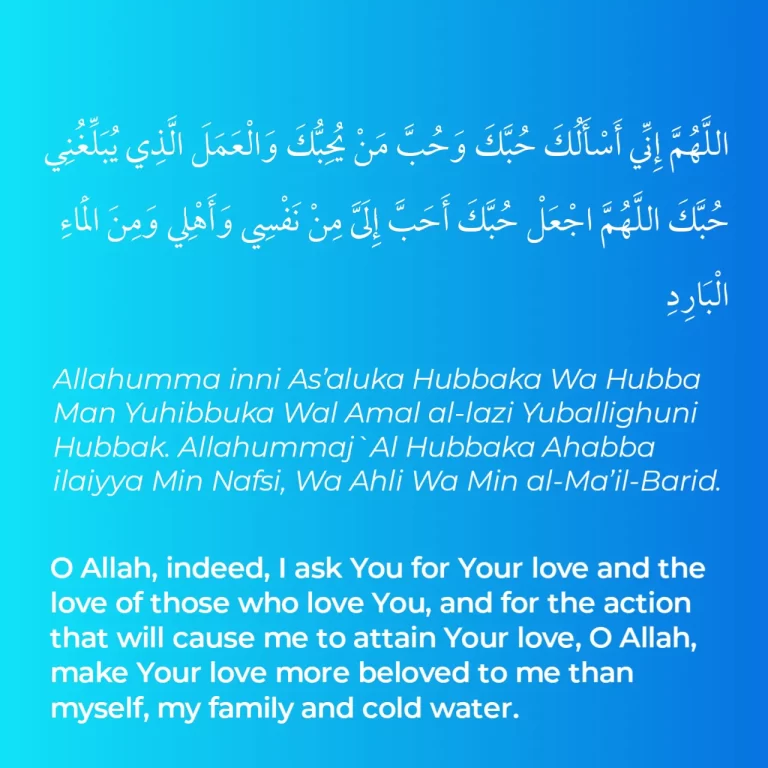
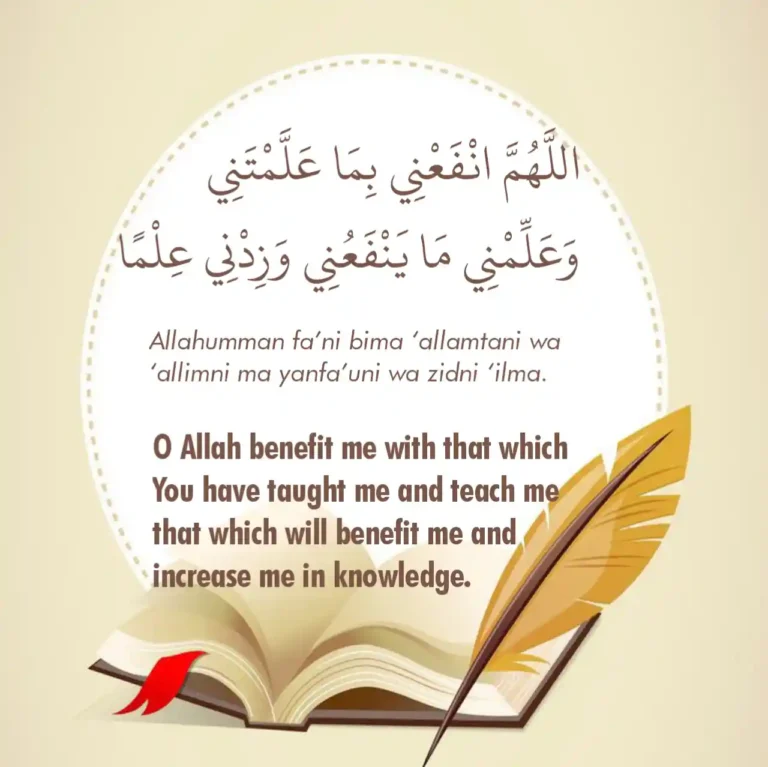
3 Comments